This is the first time Vietnam has attended the OECD MCM Conference as Co-Chair of the OECD Southeast Asia Programme (SEARP). Minister Bui Thanh Son's visit to France is the first foreign ministerial-level exchange between the two countries in the past 10 years; taking place in the context of the two sides celebrating the 50th anniversary of the establishment of Vietnam-France diplomatic relations. The visit to the Czech Republic is the first visit by a Vietnamese Foreign Minister in 09 years, taking place right after the official visit to Vietnam by Czech Prime Minister Petr Fiala (April 2023).
Vietnam is an active and responsible partner of the international community.
OECD is an important multilateral cooperation mechanism in setting global regulations, standards and policy advice. Vietnam - OECD cooperation is increasingly developing positively and substantively. Vietnam has signed the Vietnam - OECD Memorandum of Understanding for the period 2022 - 2026 and the Action Plan to implement the Memorandum of Understanding with specific areas of cooperation. Vietnam also, for the first time, together with Korea, assumes the role of Co-Chair of SEARP for the period 2022 - 2025.
The OECD MCM Conference is the OECD's most important annual activity to discuss strategic political , economic and social issues as well as exchange views on the development of global economic governance regulations and standards.
This year’s conference takes place in the context of the world and regional situation continuing to be very complicated. With the theme “Ensuring a resilient future: shared values and global partnerships”, the conference is an opportunity for countries to discuss common goals, determine their determination to jointly resolve challenges, and move towards self-reliant, sustainable and prosperous development.
The main contents of the Conference are to discuss the OECD's Global Economic Outlook Report, gender equality efforts and progress towards a framework decree to address tax challenges in the context of the digital economy; to discuss trade policies towards sustainable and inclusive growth, prioritizing measures to promote trade, investment, diversification and self-reliance of supply chains, as well as measures and policies to strengthen open markets and improve transparency; to discuss future frontiers, innovative technologies for net-zero emission economies; to discuss the future of energy, how to accelerate the clean energy transition, identify policy bottlenecks and measures to address the dilemmas of energy security, price rationality and sustainability.
Currently, the OECD has a Southeast Asia Program (SEARP) and has signed a Memorandum of Understanding with ASEAN. This 2023 meeting is the first time that the OECD has expanded its guest list to the Indo-Pacific region, as well as increased the participation of guest countries in the organization's policy discussions and policy directions.
This is a new step forward for the OECD in its cooperation with the region, and also demonstrates the OECD’s stronger commitment to a vibrant economic region. This is the first time Vietnam has participated at the Ministerial level in the OECD Council Meeting, and it is also the first time Vietnam will have statements contributing to the issues that the OECD is interested in and promoting.
Head of the Vietnamese delegation, Foreign Minister Bui Thanh Son, will speak at several sessions of the Conference, on trade towards sustainable and inclusive growth, and on innovative technologies for net-zero emission economies. These are among Vietnam’s policy priorities, from the perspective of a developing country, contributing to a diverse and practical approach to two topics of global concern.
The Vietnamese delegation will also attend many other important activities, especially the Opening Event of the OECD Global Technology Forum and the Workshop on Global Tax Policy Developments, including the implementation of the Global Minimum Tax within the framework of the two pillars of the Multilateral Agreement on Base Erosion and Profit Shifting (BEPS MLI). With these contributions, Vietnam has demonstrated itself to be an active and responsible partner of the international community, and has been and continues to effectively participate in common issues as a dynamic economy with many common visions with partners on the current development and integration path.
The Vietnam-France strategic cooperative partnership continues to be maintained effectively in many fields.
The Vietnam-France strategic cooperative partnership continues to be effectively maintained in many areas and many cooperation mechanisms. Minister Bui Thanh Son's trip to France this time also has many important meanings for the Vietnam-France bilateral relationship. This is the first visit of our Foreign Minister to France since the two countries signed the Strategic Partnership exactly 10 years ago. The relationship between the two countries over 5 decades of development as well as 1 decade of implementing the Strategic Partnership has had important accumulations in both quantity and quality and is creating a typical model of cooperation between Asia and Europe.
The two countries’ foreign policies are also at strong points of convergence. France continues to be a key player in Europe, actively pursuing a more dynamic and comprehensive policy towards the Asia-Pacific region.
Vietnam’s position has been increasingly enhanced in ASEAN and in regional cooperation mechanisms, while continuing to strongly implement an independent, autonomous and proactive foreign policy of integration. The new policies and visions of the two countries are a good foundation for the two sides to further tighten their bilateral strategic partnership.
Minister Bui Thanh Son's visit affirms Vietnam's policy of attaching importance to relations with France and Europe in its overall independent and autonomous foreign policy, as well as Vietnam's desire to further strengthen coordination with regional partners on issues of peace, security, development and cooperation.
In terms of trade, France is Vietnam's fifth largest European trading partner. In the first quarter of 2023 alone, bilateral trade turnover reached about 1.191 billion USD. In terms of investment, as of February 2023, France is the third largest European country investing in Vietnam with 633 projects with a total registered investment capital of 3.62 billion USD. In terms of development cooperation, France is the leading European bilateral ODA donor to Vietnam; Vietnam ranks second among French ODA beneficiaries in Asia. In terms of defense and security cooperation, the two countries signed an agreement amending Vietnam-France cooperation in the defense field and a joint vision statement on defense cooperation for the 2018-2028 period. Cooperation in other fields such as education, culture, tourism, etc. has also been strengthened, promoted and increasingly developed through bilateral cooperation projects.
Promoting the traditional friendship and multifaceted cooperation between Vietnam and the Czech Republic in depth and effectiveness
Vietnam and the Czech Republic established diplomatic relations on February 2, 1950. Since then, the traditional friendship and multifaceted cooperation between the two countries have developed positively. Mutual trust and understanding between the two countries have been increasingly enhanced through maintaining high-level delegation exchanges and cooperation mechanisms. Recently, Prime Minister Pham Minh Chinh met with Czech Prime Minister Petr Fiala on the sidelines of the ASEAN-EU Summit (December 2022); before that, in August 2021, the two Prime Ministers had a phone call. Most recently, Czech Prime Minister Petr Fiala's delegation paid an official visit to Vietnam (April 2023).
The two countries have signed 14 cooperation agreements in many fields, such as economics, trade, investment promotion and protection, air transport, double taxation avoidance...
In addition, the two countries always coordinate closely at international and regional multilateral forums. The Czech Republic supports Vietnam's candidacy for a non-permanent member of the United Nations Security Council for the 2020-2021 term; and is one of the first EU member states to ratify the EU-Vietnam Free Trade Agreement (EVFTA) and the EU-Vietnam Investment Protection Agreement (EVIPA).
The Czech Republic is the first Eastern European country to provide ODA to Vietnam. Bilateral economic and trade cooperation has developed positively. Two-way trade turnover in the first quarter of 2023 reached 205 million USD.
Regarding investment, the Czech Republic has 41 FDI projects in Vietnam with a total capital of 92 million USD, mainly focusing on the processing, manufacturing and mining industries. The Czech Republic's strong investment cooperation areas are energy, locomotives - railway cars, buses, electric trains, agricultural machinery, and irrigation equipment. Regarding development cooperation, the Czech Republic is the first Central European country to provide ODA to Vietnam, totaling about 20 million USD.
Cooperation in education and training is a potential area of development between the two countries. The Czech Republic has helped train thousands of Vietnamese cadres, engineers and workers to study and work in the neighboring country. Both sides are trying to promote prestigious Czech universities to cooperate with Vietnamese higher education institutions to jointly train postgraduates. From 1999 to 2014, the Czech Government granted a number of scholarships for Vietnamese students and postgraduates to study in the Czech Republic.
Cooperation in the field of labor is also a bright spot in bilateral relations. In the context of labor shortage, the Czech Republic needs to receive Vietnamese workers trained in expertise and Czech language, especially in the medical field.
The Czech Republic has established a number of vocational training facilities, supporting the improvement of skills for Vietnamese workers in fields such as mechanics and the automobile industry to supplement a skilled workforce for Czech enterprises. The two sides also agreed to further strengthen cooperation in the fields of agriculture, science and technology, environment, climate change response, energy, culture, tourism, justice and law, etc.
The Vietnamese community in the Czech Republic currently has nearly 100,000 people, making many positive contributions to the development of bilateral relations. The Czech government highly appreciates and creates favorable conditions for the Vietnamese community to reside and do business in accordance with the law. Since July 2013, the Czech government has decided to add representatives of Vietnamese Czechs to the Council of Ethnic Minorities, thereby recognizing the existence of Vietnamese Czechs as an ethnic minority in the Czech Republic.
With a long-standing and extensive cooperative relationship in all fields, Foreign Minister Bui Thanh Son's visit to the Czech Republic this time will continue to promote the traditional friendship and multifaceted cooperation between Vietnam and the Czech Republic in depth and effectiveness, especially in politics - diplomacy, trade - investment, education - training, science - technology.
Through France and the Czech Republic, strengthen Vietnam-EU relations; promote EU countries to ratify the Vietnam-EU Investment Protection Agreement (EVIPA) and the EC to remove the IUU yellow card on Vietnamese seafood./.
Source link





![[Photo] Top players gather at the 2025 Nhan Dan Newspaper National Table Tennis Championship](https://vphoto.vietnam.vn/thumb/1200x675/vietnam/resource/IMAGE/2025/5/23/9ad5f6f4faf146b08335e5c446edb107)


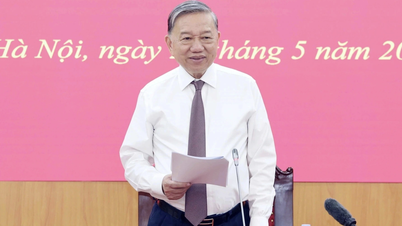

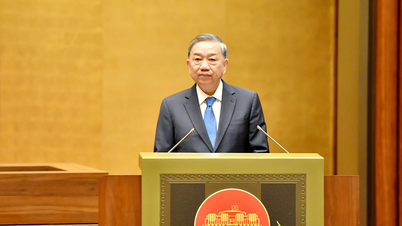



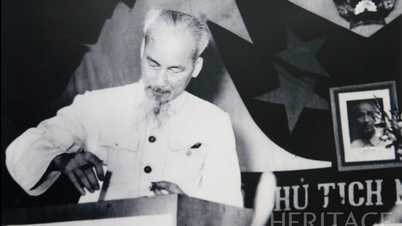
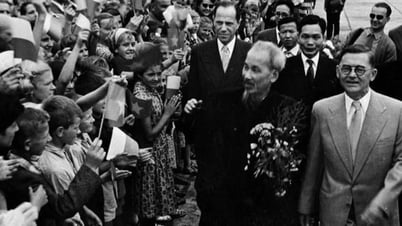

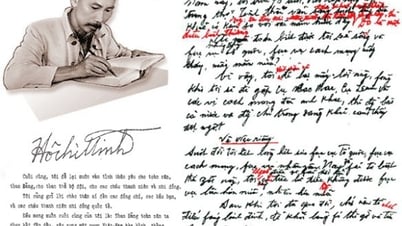





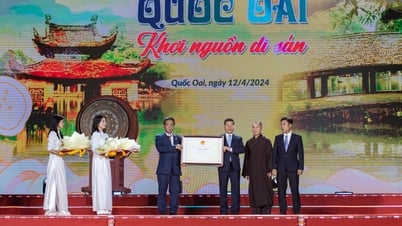

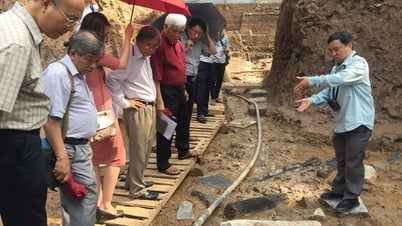














































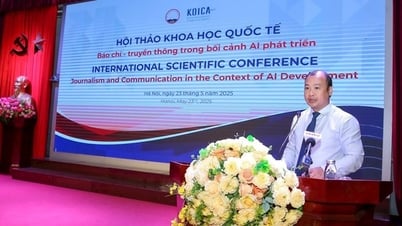
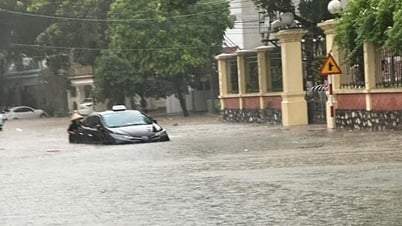


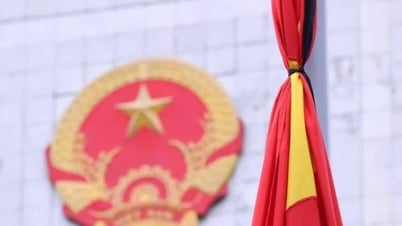





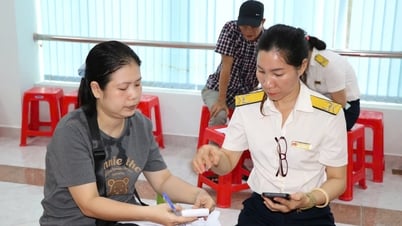













Comment (0)